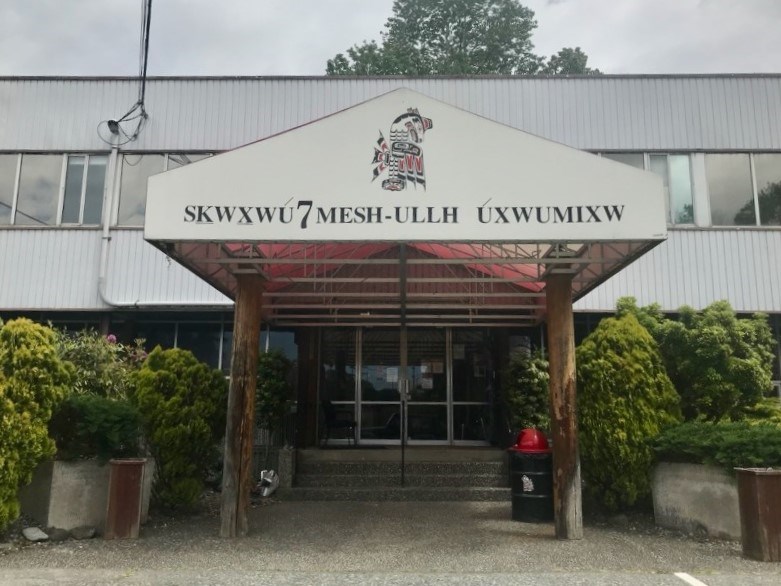—Update June 1—
On May 28, Bill 15 passed third and final reading in the Legislature by a vote of 47-to-46.
New Democrats voted for the legislation, with 41 Conservatives, the two B.C. Greens, including Sea to Sky MLA Jeremy Valeriote, and the three Independents opposing it. The tie was broken by Speaker Raj Chouhan.
The bill received royal assent from Lt.-Gov. Wendy Cocchia on May 29, transforming the act into provincial law.
Regarding the passage of the bill, Sxwixwtn Wilson Williams, spokesperson and council member, said Thursday that Sḵwx̱wú7mesh Úxwumixw (�鶹�����Nation) leadership are considering next steps.
"Council strongly opposes the provincial government’s decision to push Bill 15 forward, despite several calls for the province to withdraw the bill for its threat to the constitutionally protected rights and title of Indigenous Peoples, including the �鶹�����Nation," he said. "As a result, we have now directed staff to undertake a comprehensive political and legal review to inform our next steps," he added.
"The United Nations Declaration on the Rights of Indigenous Peoples (UNDRIP), which Canada and the province have endorsed, emphasizes the necessity of obtaining free, prior, and informed consent from Indigenous peoples before implementing measures that may affect their lands, territories, and resources. Bill 15 is a step backwards in the province’s relationship with Indigenous People.
"Since the introduction of UNDRIP, we have made notable progress in streamlining decision making with all levels of government and industry. However, despite these advancements, we will now be conducting a full analysis of how we will engage in the future."
—Original story—
Sḵwx̱wú7mesh Úxwumixw (�鶹�����Nation) is taking a strong stand against what it deems a “significant threat” to the constitutional rights and title of Indigenous Peoples of the provincial government’s , which is due to pass on Wednesday.
B.C.'s Minister for Infrastructure, Khelsilem, Nation council chairperson, appealed to the provincial government to immediately withdraw the legislation and to subsequently discuss amendments co-operatively.
The was first introduced on April 10 last year.
It was drafted by theMinistry of Infrastructure with the aim of centralizing planning for major capital projects, such as schools and health care facilities.
The bill would give the cabinet such projects, which it deems significant to the province.
The Nation’s May 13 letter of appeal lists “grave concerns” over the marginalization of Indigenous knowledge, centralized powers without accountability or transparency, and an overall lack of Free, Prior and Informed Consent (or FPIC).
The Nation’s commitment to a “shared vision” with the province is also elaborated upon, as well as the province’s legal and moral obligations, and co-decision making.
Significantly, the Nation states that the bill is holistically “a step backward… [in] a self-governing Nation with deep responsibilities to our lands and waters,” and that it “is a clear violation of the United Nations Declaration on the Rights of Indigenous Peoples (UNDRIP) and the Declaration on the Rights of Indigenous Peoples Act (DRIPA).”
According to the Nation, it had not received a response to its letter as of May 28.
'Walking backwards'
The Nation is not alone in its sentiments and disillusionment with the bill.
Many other Indigenous organizations and leaders have spoken out against it.
For example, an was also presented to the province this week by the First Nations Leadership Council on behalf of the First Nations Summit, the Union of BC Indian Chiefs, and the BC Assembly of First Nations, which said the province was “walking backwards with a top-down, ‘economy first’ agenda,” which could have “irreparable” impacts on many First Nations’ relationships.
The letter described how the FNLC had convened with the province on May 15 at an where they communicated their—yet to be acknowledged—opposing stance, and that the wording within the proposition of Bill 15 was misleading and unclear, for example the definition of “core territories,” and who would determine the whereabouts of a project.
Furthermore, the FNLC suggested that the bill’s proposal purported to uphold Indigenous rights as an explicit provision, including consent as a prerequisite, and yet was not included in the ultimate legislative wording.
“The honour of the Crown is at stake when the Crown engages with First Nations,” the letter reads, “[it is] part of honourable dealing… more than just semantics.
“This is not a matter for the Crown to decide, and this proposed approach seriously risks prejudicing First Nations because of new or persisting boundary disputes caused by colonial policies and processes. It is a paternalistic and dismissive approach [to core territories] in this context.”
'Our government remains committed to reconciliation'
For its part, the Ministry of Infrastructure told The �鶹����� that whilst it is understandable Indigenous People want clarity, the province remains committed to its obligations under DRIPA.
In a statement, the ministry said that on March 26, it issued letters offering future, deeper consultations on the bill to all 204 Nations impacted.
“We acknowledge that our engagement process was shorter than we would have liked,” the emailed statement reads, “but we want to be clear, the bill can’t be used to shortcut Indigenous participation … Our government remains committed to reconciliation.”
According to the Ministry, the obligation to consult with the First Nations is guaranteed by a section written directly into the bill, as well as the which is a separate piece of legislation ensuring that all legislation must be interpreted in a way that aligns with DRIPA.
“We are committed to working collaboratively with partners, and to ensuring projects uphold BC’s world-class environmental standards and consultation with First Nations,” the statement continues.
Ina Pace is The �鶹�����'s Local Journalism Initiative (LJI) Reporter.
This reporting was produced through the which supports original civic journalism across Canada.



